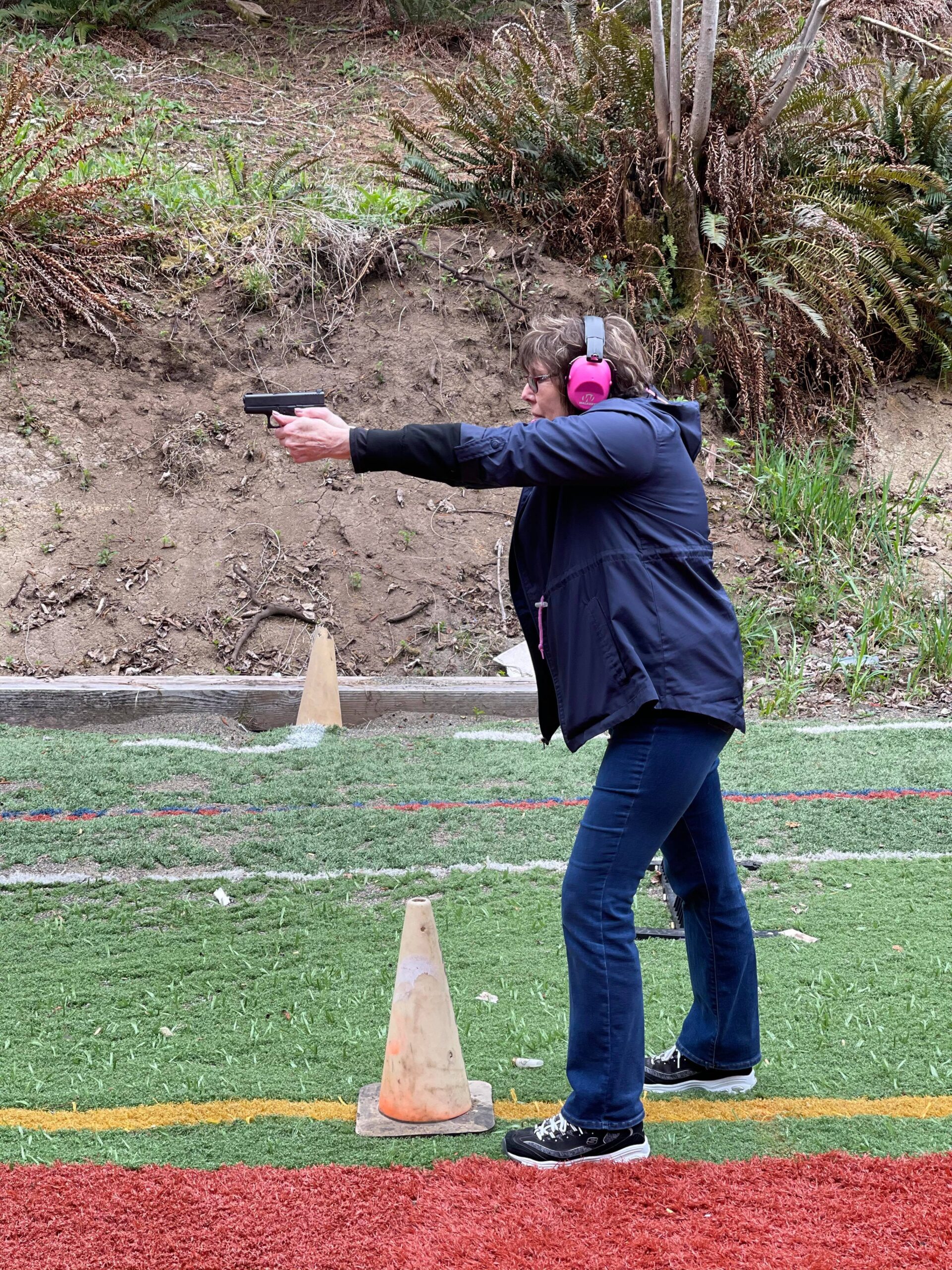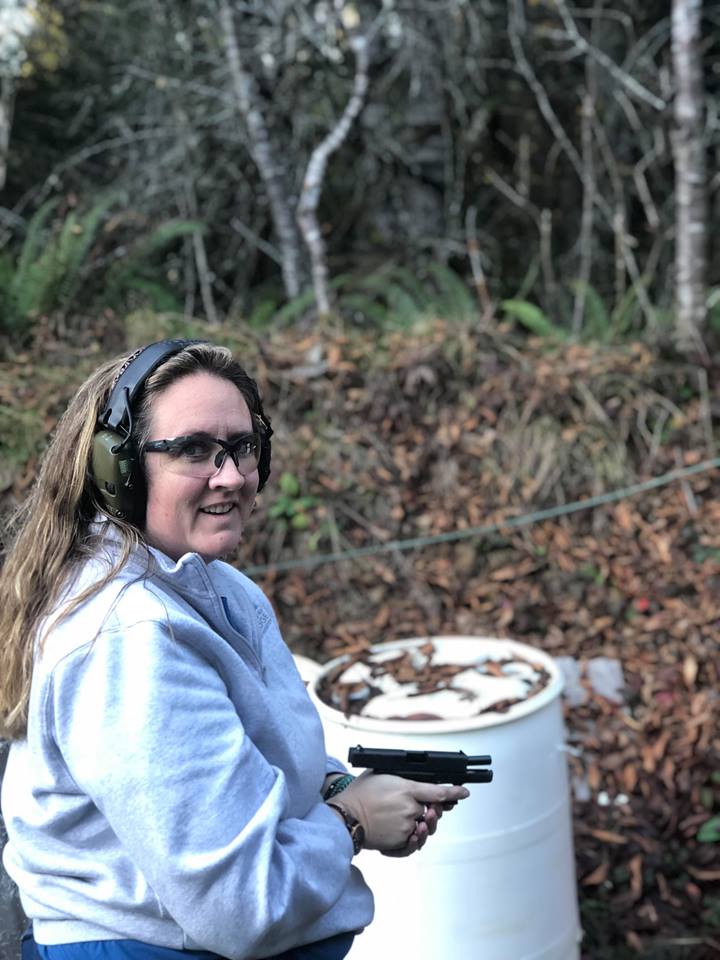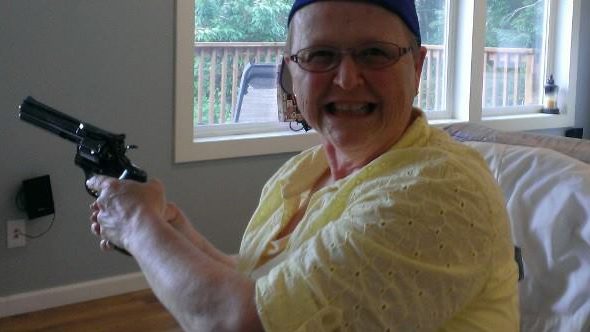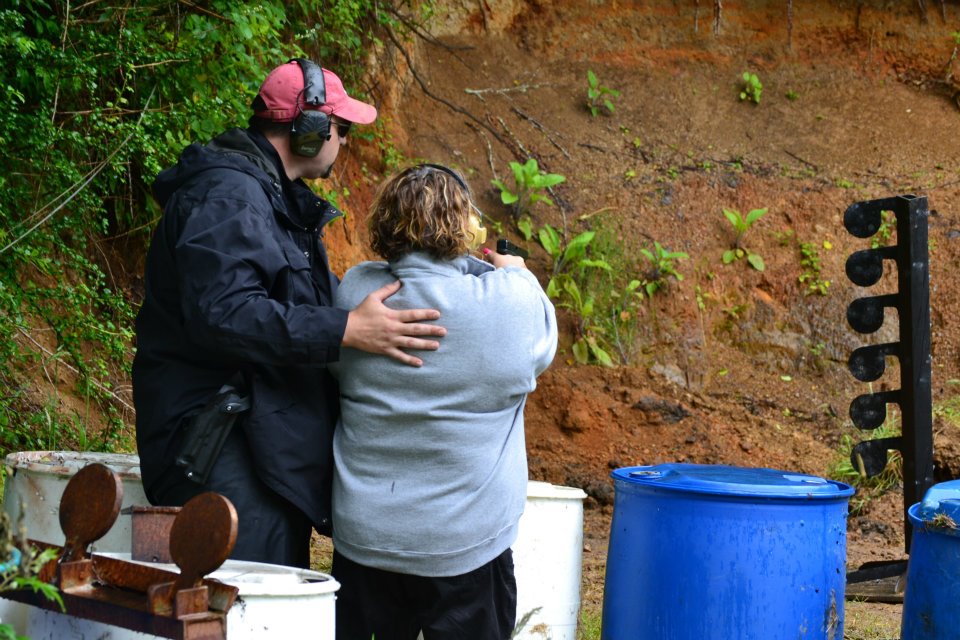A Great Gun For A Girl

What an insulting story headline
When you select a pistol, there are many things you should consider, your gender is not one of those considerations!
I’ve seen this headline or ones similar repeatedly over the years. I’ve heard the statement made while teaching classes and when in gun stores. Don’t buy a gun because of the color, you can have the gun painted later. Buy the gun that is the best fit and function for you.
The intended purpose of the firearm should be the primary consideration when selecting a pistol! It is often claimed that revolvers are the best gun for women because they lack the requisite strength to manipulate the slide or other malfunction and loading aspects of the firearm. I would opine that it is more of an issue of technique more than strength alone.

What are the best guns for women?
The best gun for a woman is the best gun for a man! What we really should be asking is, what is the intended purpose of the firearm and what physical attributes about the shooter needs to be matched to the gun.
Is the person selecting the firearm someone with particularly small hands? Does the person selecting the firearm have arthritis in their hands? Does the purpose of the gun need to include concealability? Does the user plan to have an optic or a flashlight or other type of accessories mounted to the gun? Will a holster be available to them if they need one?
What are your reasons to own a pistol?
Many Americans choose to own a pistol for very different reasons. Amongst some of those reasons is recreational shooting, competitive shooting, protection of yourself and your family, exercising a constitutional right, collecting, or even hunting.
When you start talking about pistols, there are several categories to be considered. The three most common pistol action types would include the semi-automatic pistol, double action revolver, and the single action revolver. Underneath the semi-automatic pistol category, we find a subcategory of the traditional double action, the double action only, and the single action pistol.
I’m sure all get some pushback from this comment but based upon my experiences I would say that you can eliminate the single action revolver from this conversation for most people. That would take us to the semi-automatic pistol and the double action revolver for what we are considering.
It HAS to have a safety
The thought that the firearm must have a safety is another category that tends to leave me frustrated. A mechanical safety on a firearm is usually a safety blanket or pacifier for the new shooter. A quality holster and an engaged brain is more important than a mechanical safety. I prefer to not have a mechanical safety but that is merely my preference. Remember that a mechanical safety is a man-made device and it can fail.
If you choose a firearm with a mechanical safety a rule must be followed. The rule with the mechanical safety is that it must be always used especially during training. If one bypasses the use of the safety in training, they are setting themselves up for failure under the stress of an actual event. Again, if selecting a firearm with a safety you should consider; can the user reach the safety without breaking down the grip of the shooting hand and does the user have the requisite strength to manipulate the safety?
While some may argue that they can just use the support hand to manipulate the safety, if the firearm is to be used or purchased for defense of yourself or others, you are setting yourself up for failure to need your support hand to manipulate the mechanical safety. You might need that support hand for opening doors, pushing away an attacker, or even holding a flashlight.
Double-Action Revolver
The double-action revolver is a great tool and it has withstood the test of time. What is a double-action revolver? The double-action revolver is a firearm that has a trigger that performs 2 tasks. Within the Frame, Barrel, and Action there is a cylinder that contains cartridges and it turns when the trigger is pressed, going to the next cylinder. The trigger both cocks and releases the hammer. Most double action revolvers, but not all, can also be fired in the single-action mode where the user cocks the hammer with the support hand thumb. If the revolver is to be used as a defensive tool, the user must be able to press the trigger in double-action mode and not just single-action mode.

The biggest mistake I see with the double-action revolver purchase for shooters, both men and women, is the misunderstood thought that a smaller revolver (or semi-automatic pistol) equals an easier to shoot pistol. The reality is a lighter and smaller gun has more felt recoil than the larger revolver shooting the same caliber cartridge.
Semi-Automatic Pistol
Your options when choosing a semi-automatic pistol are vast. Not only do you have the subcategories of single-action semi-automatic pistol, traditional double-action semi-automatic pistol, and the double-action only semi-automatic pistol but you have many different sizes shapes and accessory options in the field of the semi-automatic pistol. Much like vehicles, different manufacturers offer very many different looks and feel to their product. You also have a variety of quality that goes with the firearm.
Going back to the conversation of the intended purpose being important when selecting a pistol, this couldn’t be truer when talking about the semi-automatic pistol. Assuming you were in the market for a pistol for the purpose of self-defense, you need to also decide if it’s for in the home exclusively or you plan to carry concealed. The physical size of the gun begins to matter for grip size and for carrying outside of the home.
Consider a pistol that can mount a flashlight onto it if you plan to make a home defense pistol. If it’s a home defense pistol, finding a holster and being able to conceal it doesn’t matter!
If carrying outside of the home, can you find a holster that fits the gun? Where do you physically plan on carrying the gun on you? How much time do you plan to commit to training?
You’ve chosen the platform and now you need to decide which brand and model
When you finally decide which platform of firearm you’re going to choose, and you’ve established your intended use of the pistol, you need to decide your price and budget. You get what you pay for with vehicles and you get what you pay for with pistols.
Next consider the availability and price of ammunition. Speaking of ammunition, if your intended purpose is self-defense you should consider using nothing smaller than a .380 or .38 Special. This is a subject we could discuss at length!
The pistol fit and ergonomics are important. What fits my large hands might not necessarily fit your small hands or your different shaped hands. Many firearms manufacturers offer grip modules that can help you dial in the grip to be perfect for you.
Make sure you can handle the recoil. Find someone that owns a gun that you are considering purchasing or rent one and try it out before you make the investment.
Simplicity of operation and ease of cleaning can be very important as well. Are you physically capable of performing the task to disassemble the gun and clean it? Just because you don’t know how now doesn’t mean you couldn’t learn but some guns are much more complex to disassemble than others and some even require use of special tools.
Reputation of the manufacturer is important, as well as the reliability record in the make and model that you’re choosing. Consider what warranty or guarantee the manufacturer offers.
What do knowledgeable shooters that you know and respect say about the various makes and models you’re considering?
Make sure you buy the pistol from a reputable dealer and try to shop small and local if you can!

Get training before you buy and after you buy
Buying a gun is easy but you need to be responsible. Eliminate frustrations and get some training before you purchase a gun. Once you’ve bought the gun, get some training with that specific gun and consider scheduling yourself for reoccurring training to stay proficient and confident.
Contact us at Willapa Firearms Training for your training needs or questions. We have courses monthly and are available for private instruction by appointment. Heath@willapafirearmstraining.com






